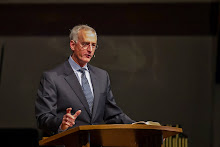One of the things that interest me about the sermons in the book of Acts is their historical context. They do not begin with the crucifixion of Christ or even the life of Christ as he entered humanity through the virgin birth. These sermons or gospel presentations begin with the prophecies related to Christ given throughout the Old Testament. Peter refers to the prophecy of David, given in Psalm 16:8-11, concerning Christ’s resurrection. Stephen’s sermon began with God’s calling of Abraham and alluded to Jacob, Joseph, Moses, Joshua and Solomon and ended with his condemnation of his listeners for killing Jesus Christ (Acts 7). Phillip explained Isaiah 53 to the Ethiopian eunuch and its relation to the good news of Jesus Christ (Acts 8:34-35). Paul, on his first missionary journey with Barnabas, began his first sermon with reference to God’s choosing of Abraham and how he worked through the people of Israel before speaking to them about Jesus Christ and his death and resurrection (Acts 13:16ff).
When I was ordained I was asked the question, "What is the least a person needs to know in order to be come to faith?" This is not an uncommon question at ordinations or in theological discussions, yet I find it disturbing. The apostles spent three years with Jesus, watched his life and listened to his words. If these men, who heard the final command of Jesus to take the gospel into all the world, went to such lengths to explain the redemptive story, why do we attempt to minimize the information we share with others about Christ?
The gospel is the greatest news ever given to humanity. We must be careful that we clearly and fully communicate its message to those with whom we share. Great care must be taken that we do not attempt to manipulate a person's response.
Paul explained to the Corinthian church that he had planted the seed of truth, Apollos had watered the seed, but God gave the growth. We may plant or we may water. It is God who creates the fruit.
